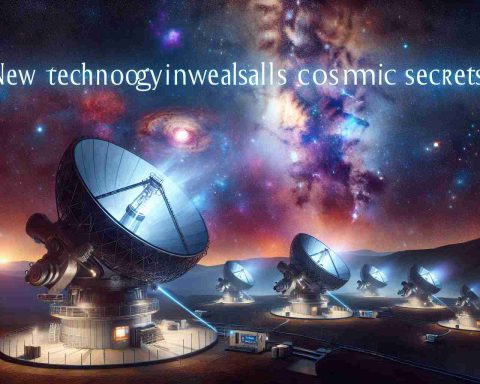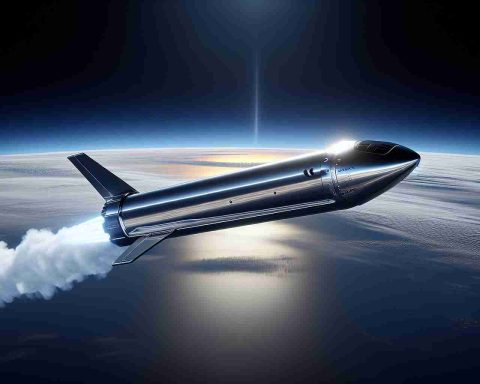The future of space exploration just got brighter for India!
Prime Minister Narendra Modi has commended the remarkable achievements of Indian space startup Digantara, particularly highlighting their groundbreaking Mission SCOT. In a heartfelt message on X, he acknowledged the mission’s pivotal role in advancing space situational awareness for the nation. This recognition underlines the growing prominence of India’s private sector in the space industry.
In response, Digantara expressed deep appreciation for the Prime Minister’s support, emphasizing that Mission SCOT reinforces India’s commitment to national security and establishes its position as a leader in space domain awareness. The startup revealed successful communication with its ground station, showcasing the deployment of solar panels and stable operations.
The upcoming phase of Mission SCOT will focus on finalizing the satellite for its core functions in Low Earth Orbit (LEO), including precise tracking and imaging. With an enthusiastic team dedicated to fine-tuning the satellite, they aim to ensure it is ready for its ambitious objectives in the near future.
Meanwhile, the Indian government is also making strides to boost the private space sector. A significant Venture Capital Fund, valued at ₹1,000 crores, has been approved to support emerging space startups. This initiative is part of broader reforms aimed at fostering innovation and investment in India’s burgeoning space economy, which is projected to grow substantially in the upcoming years.
The Broader Implications of India’s Space Ventures
India’s strides in space exploration resonate far beyond national pride; they represent a transformative moment for societal dynamics, cultural identity, and global economic structures. The rise of private space startups like Digantara is indicative of a seismic shift in how nations approach space technology. As these companies begin to take the lead, traditional models of space exploration dominated by government agencies are evolving. This democratization of space initiatives fosters an environment ripe for innovation, not just in India but worldwide, as countries aim to replicate this enthusiastic model.
Moreover, as the Indian space economy flourishes with expected growth rates exceeding 10% annually, it positions India as a key player in the global marketplace. The Venture Capital Fund of ₹1,000 crores is a strategic move to attract international investments, potentially stimulating collaborations that bolster both research and technological advancements. In this interconnected landscape, global partnerships could address shared challenges, such as climate change and resource management, through space-based solutions.
On an environmental front, the expansion of satellite technology may allow for better monitoring of climate patterns and natural disasters, providing invaluable data for sustainable development initiatives. As the industry evolves, future trends may point towards more eco-friendly spacecraft and a heightened focus on minimizing space debris, underscoring a collective responsibility in the space domain.
Ultimately, India’s burgeoning ambitions in space exploration symbolize not only an economic opportunity but also the potential to redefine humanity’s relationship with the cosmos, cultivating a spirit of exploration that transcends borders.
The Future of Space: India’s Private Sector Shines with Digantara’s Mission SCOT
Overview of Mission SCOT
The Indian space landscape continues to evolve, marked by innovative contributions from private companies like Digantara. Prime Minister Narendra Modi has recently lauded the startup’s achievements, particularly with its groundbreaking Mission SCOT (Space-based Communication for Object Tracking). This mission is a significant stride towards enhancing space situational awareness, affirming India’s commitment to, and leadership in, securing its interests in the space domain.
Key Features of Mission SCOT
– Technological Innovations: Mission SCOT aims to facilitate precise tracking and imaging in Low Earth Orbit (LEO). The satellite is designed to deploy advanced sensors and communication technologies essential for monitoring space debris and other objects in orbit.
– Ground Station Communication: Successful establishment of communication with the ground station signifies a milestone for Digantara, demonstrating their technical capabilities and readiness for future missions.
– Solar Energy Utilization: The integration of solar panels highlights a commitment to sustainability, ensuring that the satellite operations are powered in an eco-friendly manner.
How Mission SCOT Enhances National Security
Mission SCOT plays a crucial role in bolstering India’s national security by:
– Monitoring Space Debris: By tracking objects in LEO, the mission helps in assessing risks that space debris poses to operational satellites and the International Space Station.
– Facilitating Data Sharing: The data garnered may also be shared with other nations, enhancing international collaboration in space safety and security protocols.
Government Support for Space Startups
Acknowledging the significance of the private sector, the Indian government has launched a ₹1,000 crore Venture Capital Fund. This initiative aims to:
– Encourage Innovation: By providing financial support to emerging space startups, the fund seeks to foster technological advancements and creative solutions in the space sector.
– Market Growth: The Indian space economy is poised for expansive growth, with expectations of increased investment and innovation as the government reforms pave the way for private contributions to become more robust.
Pros and Cons of India’s Growing Private Space Sector
Pros:
– Enhanced technological capabilities and innovation.
– Increased investment opportunities for startups.
– Improved national security through innovative space awareness programs.
Cons:
– Competitive pressures for startups to meet government and market expectations.
– The potential for market saturation if too many businesses enter a similar niche.
Upcoming Trends in Space Exploration
– Increased Investment: More private investment is likely to pour into the space sector as the government actively promotes and incentivizes private participation.
– Focus on Sustainability: Future missions may place an emphasis on eco-friendly technologies to address environmental concerns associated with space operations.
– Collaborative Efforts: Expect to see growing partnerships between government entities and private companies, enhancing research and application in space technology.
Conclusion
With Digantara’s Mission SCOT and the supportive framework established by the Indian government, the future of space exploration looks promising. The projections for growth in the private sector signal a vibrant ecosystem ready to take on the challenges of modern space exploration.
For more insights into India’s space initiatives, visit ISRO’s website for updates and news.
















